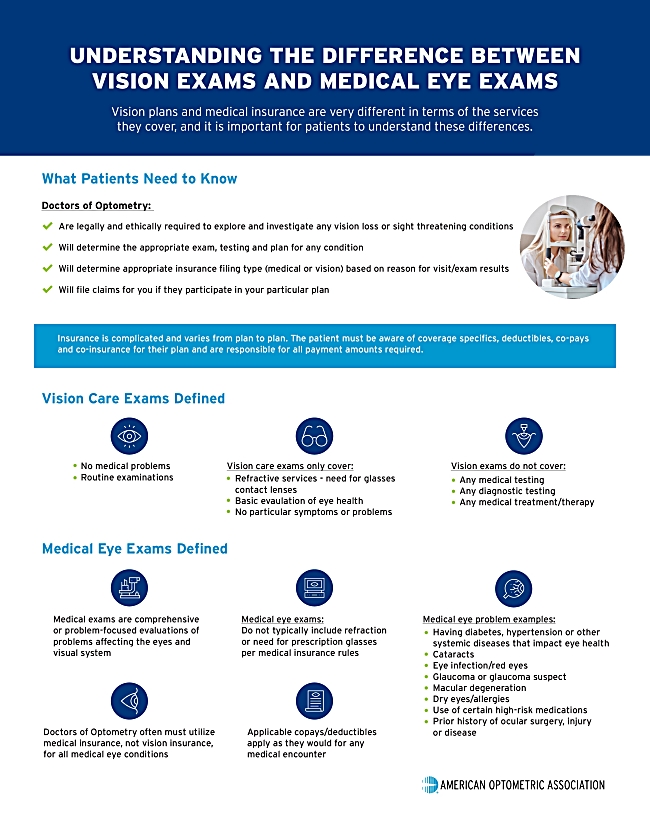Comprehensive Eye Exams
It’s about more than just blurry vision.
Eye exams are vital to your overall health.
In addition to assessing your visual acuity, your eye care provider will test for common eye diseases, assess how your eyes are functioning together, and more.
Serious health issues like diabetes and high blood pressure are often first detected during an eye exam.
Don’t put it off — schedule your comprehensive eye exam at Greater Thumb Eyecare today.
What does a comprehensive eye exam include?
Your optometrist will determine what tests are needed based on your medical history.
However, most comprehensive eye exams include the following:
- Visual acuity to test the sharpness of your vision, usually with an eye chart
- Visual fields test to check for blind spots in your vision
- Retinoscopy to estimate your eyeglass prescription
- Refraction to determine your exact eyeglass prescription
- Slit lamp to check for common eye diseases and conditions
- Retinal photo screenings to test for diabetic retinopathy
- Tonometry to test for glaucoma
- Ophthalmoscopy to examine the optic nerve, retina, and blood vessels
How often should I get a comprehensive eye exam?
Most eye care professionals recommend yearly eye exams. But it depends on your age, risk factors, and whether or not you wear corrective lenses.
The American Optometric Association (AOA) recommends children have their eyes examined at 6 months old, three years old, at the start of school, and at least every two years until age 18.
We recommend an annual comprehensive eye exam for all of our patients.
What about contact lens exams?
A comprehensive eye exam typically does not include a contact lens fitting. So you may need to schedule a separate contact lens exam. Contact lens wearers require an annual eye exam to look for any complications associated with wearing contact lenses.
Just let us know when you schedule your appointment, and we’ll make sure you are taken care of.
Make healthy vision a priority in your life and in the lives of the ones you love. Schedule a comprehensive eye exam at Greater Thumb Eyecare now.
Medical Eye Exams
- Diabetic Eye Disease
- Glaucoma
- Dry Eye
- Eye Infection, red eyes, ocular allergies
- Eye Injury & Eye Trauma
- Lazy Eye, Strabismus
- Computer Vision Syndrome
- High- Risk Medications

Medical eye exams may include the following testing:
Retinal Imaging with Optomap or Eidon Digital Photography
This diagnostic tool provides a computerized image of the internal structure of the eye, capturing approximately 82% of the retina in one image. This helps diagnose certain eye diseases and disorders long before any symptoms may be apparent.
Optical Coherence Tomography (OCT)
A procedure that uses light waves to take a cross-sectional picture of the retina, It is used routinely in managing eye diseases such as glaucoma and macular degeneration.
Automated Visual Field
Testing to look for defects in a patient’s field of vision that can be related to retinal or neurological disease.
